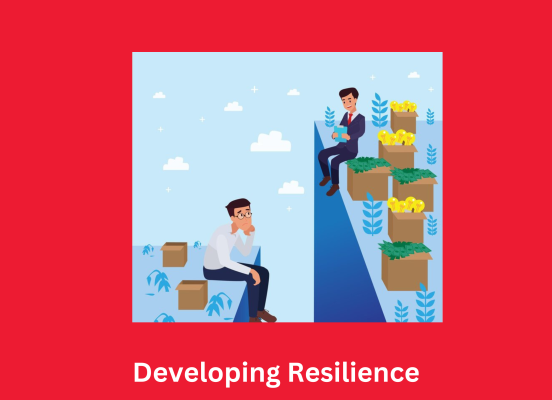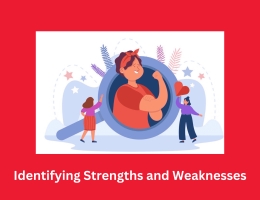
Developing Resilience: Building Strength to Overcome Setbacks and Enhance Self-Confidence
- By admin --
- Sunday, 17 Mar, 2024
Introduction:
Resilience, the ability to bounce back from adversity, setbacks, and failures, is a crucial skill for building self-confidence and navigating life's challenges with grace and determination. While setbacks are inevitable in the pursuit of goals and personal growth, resilience enables individuals to persevere in the face of obstacles, learn from experiences, and emerge stronger and more confident. This article explores the importance of developing resilience as a key component of self-confidence and provides strategies for building resilience in the face of adversity.
Understanding Resilience:
Resilience is not a fixed trait but rather a dynamic process that can be cultivated and strengthened over time. It involves adapting positively to adversity, maintaining a sense of purpose and optimism, and utilizing coping mechanisms to navigate difficult circumstances. Resilient individuals possess the psychological flexibility and inner strength to withstand challenges, rebound from setbacks, and thrive in the face of adversity. By developing resilience, individuals can enhance their self-confidence and sense of mastery over their lives.
Acceptance of Setbacks and Failures:
One of the fundamental aspects of building resilience is accepting setbacks and failures as part of the human experience. Instead of viewing setbacks as indicators of personal inadequacy or failure, resilient individuals recognize them as opportunities for growth and learning. By reframing setbacks as temporary obstacles rather than insurmountable barriers, individuals can maintain a positive outlook and preserve their self-confidence in the face of adversity.
Cultivating a Growth Mindset:
A growth mindset, characterized by a belief in one's ability to learn and grow from experiences, is closely linked to resilience and self-confidence. Individuals with a growth mindset view challenges as opportunities for development and improvement rather than threats to their self-worth. By embracing challenges, seeking feedback, and persisting in the face of obstacles, individuals can cultivate a mindset that fosters resilience and enhances self-confidence.
Building Social Support Networks:
Social support is a critical factor in building resilience and bolstering self-confidence during challenging times. Having a network of supportive friends, family members, mentors, or peers can provide emotional encouragement, practical assistance, and perspective during difficult times. By seeking support from others, sharing experiences, and offering support in return, individuals can strengthen their resilience and sense of belonging, enhancing their overall well-being and self-confidence.
Developing Coping Strategies:
Effective coping strategies are essential for managing stress, adversity, and setbacks and building resilience. Coping mechanisms such as problem-solving, seeking social support, practicing mindfulness or relaxation techniques, and maintaining a healthy lifestyle can help individuals regulate their emotions, reduce stress, and maintain a sense of balance during difficult times. By developing a repertoire of coping strategies that suit their individual needs and preferences, individuals can enhance their resilience and confidence in their ability to cope with adversity.
Learning from Adversity:
Adversity can be a powerful teacher, providing opportunities for growth, self-discovery, and resilience. Resilient individuals approach adversity with curiosity and openness, viewing it as a chance to learn about themselves, their strengths, and their values. By reflecting on past experiences, identifying lessons learned, and applying them to future challenges, individuals can cultivate resilience and self-confidence in their ability to navigate life's ups and downs.
Maintaining Perspective:
Maintaining perspective is essential for building resilience and preserving self-confidence during difficult times. Resilient individuals are able to step back from challenging situations, assess them objectively, and recognize that setbacks are often temporary and situational. By reframing adversity as a normal part of life's journey and focusing on long-term goals and values, individuals can maintain a sense of perspective and resilience in the face of adversity.
Conclusion:
In conclusion, building self-confidence and flourishing in the midst of hardship are two main advantages of cultivating resillency. Therefore individuals are motivated to strengthen their capacity for overcoming challenges and achieving their goals. For this reason they have to accept setbacks as well as failures, develop coping mechanisms, establish social support systems among others. All these things increase the power of one’s resilience as well increase optimism in his/her potential to accomplish objectives even after facing difficulties.





